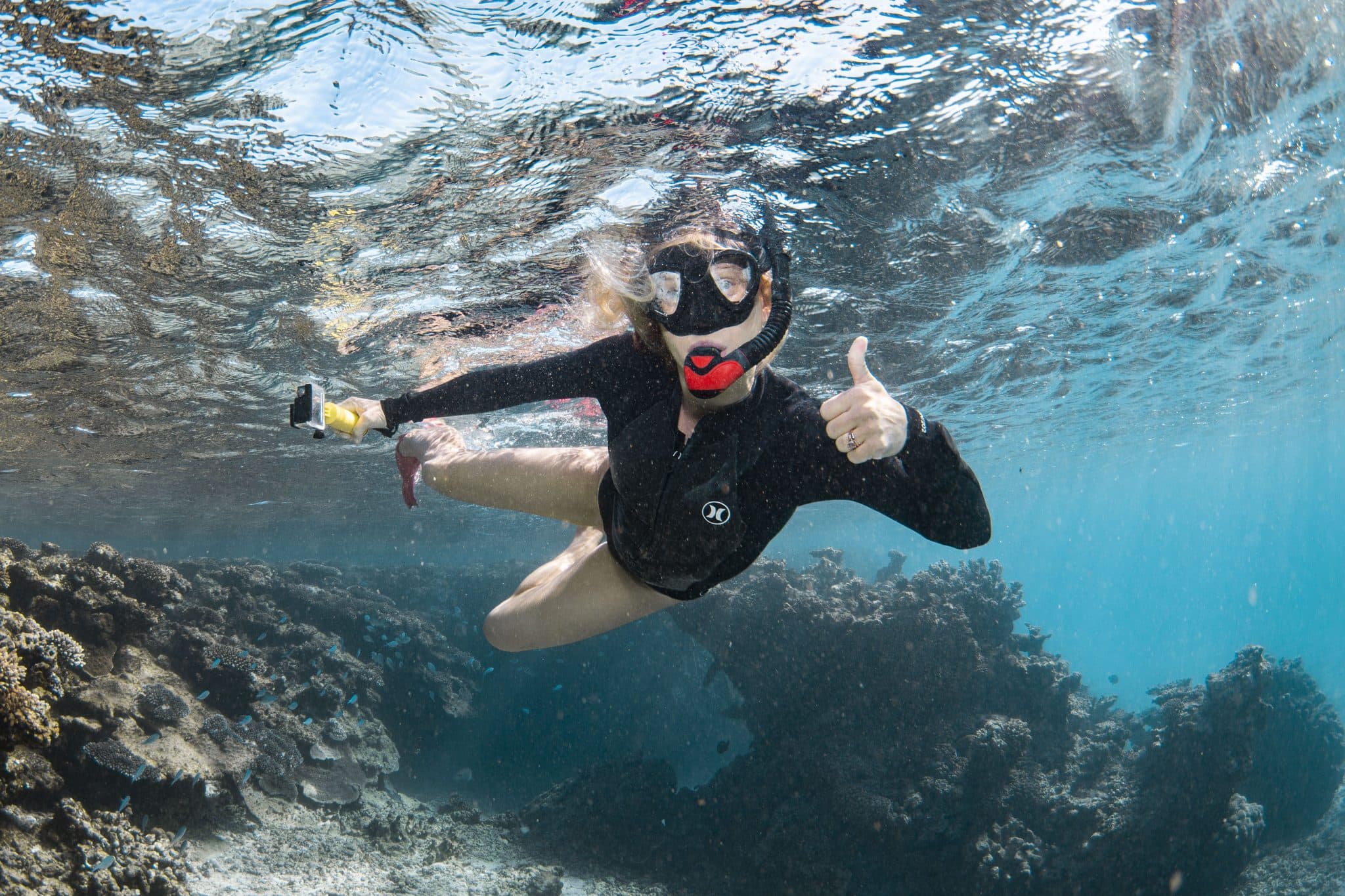Inspired by her father, and tapping into her natural curiosity of marine life, Milada Safarik set out to explore the very unknown aquaculture that was slowly emerging in Australia.
Together, they developed an entire industry from scratch, designing and overseeing the construction of pond farms in order to harvest worms.
It was these early family and career experiences that saw her develop a love for science and made her want to become an educator in the field. These experiences also saw her named “worm woman”, having achieved significant world firsts in marine worm production for the aquaculture industry, and was named the 2003 AgriFutures Rural Women’s Award NSW/ ACT Winner, formally RIRDC.
Her love for marine biology has now taken her to the other side of the country and led her to become a dedicated science teacher, with the hopes of encouraging more women to pursue a career in science.
She also shares a love for adrenalin sports, something she’d love to see more women involved in — and teaches kitesurfing on the weekends in Perth.
Below she answers our questions.
How would you describe your key areas of work what you’re aiming to achieve, especially in science education?
I have always been an advocate for sharing knowledge that I am passionate about, and creating an enriching educational experience by enlightening students with the wonders of the world, particularly science, but also for anything I love, e.g. marine environment, the ocean, animals, water sports such as kite surfing and anything else I fall into that makes my world a better place.
I believe in continuous learning, this never ends, and by instilling this notion into my students, I am hoping it motivates them to also be a lifelong learner, we never know everything.
Most importantly, I try to encourage women to pursue careers in science and question the world around us. I also encourage women to step into their passion and follow it, believe in themselves and have enough self-worth to reach for the stars in their life choices. This may look like everything from encouraging my senior students to believe in themselves enough to pursue tertiary education and find their path, to pushing women to try an Adrenalin sport that pushes their boundaries!
In short, my key areas of work are: Inspiring the next generation of curious minds, and learning more along the way.
Is there any key turning point that put you on the path?
My pathway in education has paved the way for how I do things now. I have always had to bend the stereotypes that were thrown at me, and wish I had half the encouragement available today for women in many fields.
The key turning points are many and varied, and I can see clearer as I get older, how these early influences could have easily discouraged me. I want to make sure I never discourage someone in their chosen pathway.
In 2003, you were described as ‘Worm Woman’ by Catalyst, for your science research into marine worms and worm farming. Are you stull pursuing this research and work?
My time as “worm woman” resonates deeply in my heart with my family, I was inspired so much by my father to pursue this dream, that I devoted myself to his passionate plans to create the first marine worm farm in Australia. This was an easy choice and it involved both my heart, mind and my natural curiosity of the world.










